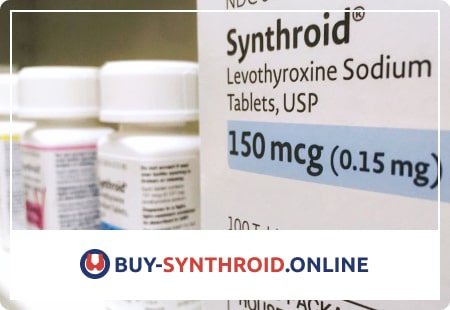
L-thyroxine
L-thyroxine is a synthetically manufactured thyroid hormone. Its action is similar to that of the natural thyroid hormone L-thyroxine (Lt4). L-thyroxine is one of two hormones produced by the thyroid gland, the other hormone being L-triiodothyroxine (LT3) (see also Cytomel). L-thyroxine, of course, is somewhat weaker of these 2 hormones, so it is more often used for longer periods of time than LT3. Bodybuilding athletes take L-thyroxine to speed up the metabolism of carbohydrates, proteins, and fats. The body burns more calories than normal, so it is possible to achieve lower fat levels with the drug, and it also ensures that athletes burn fat even when their caloric intake is increased. L-thyroxine used to be used frequently by bodybuilders, although unfortunately it is not only fat that is burned, but also proteins and carbohydrates. The athlete gets firmer, but still loses muscle mass. Today, L-thyroxine is used less often because most athletes today use Cytomel and Triacan, which are stronger in this respect.
Side effects with careful use of L-thyroxine are small. Excessively high doses and rapid increases in doses at the beginning of the course can lead to hand tremors, severe sweating, diarrhea, drowsiness, drowsiness, palpitations, internal restlessness, and weight loss, so it is important to increase the doses smoothly, starting with a small dose and gradually increasing to the maximum. The doses used by athletes are usually in the range: 200-400 mcg, per day.

Thyroid hormone
Synthroid is the most commonly used name (U.S.) for the drug levothyroxine sodium. Specifically, it is a synthetically produced thyroid hormone that has the same effect as the endogenous hormone thyroxine-4 (T-4). Thyroid hormones are mainly responsible for regulating the rate of metabolism and play an important role for the human body. When thyroid hormones are prescribed, metabolism improves markedly. This manifests itself in faster conversion of carbohydrates, proteins and fats, as the body burns more calories in a day. For medical purposes, these hormones are used to treat thyroid dysfunction and obesity (caused by such a disorder).
This drug works in much the same way as Cytomel (Cytomel a). However, Cytomel has a different structure, being a synthetic hormone called triiodothyronine (T-3). A healthy person has sufficient amounts of both thyroid hormones T-3 and T-4. If you compare them, roughly speaking, the T-3 hormone is 4 times stronger than T-4 (basically the T-4 hormone acts after being converted to T-3). This becomes clear if you compare the form of the pills. Cytomel contains less micrograms of the substance.
The drug Cytomel is much stronger than Syntroid, and usually with the same availability one prefers to buy it. Because Syntroid is much weaker, an athlete needs to take it for a longer period of time to achieve the same results.
Thyroid hormones are among the most effective in an athlete's arsenal. When taking the drug, fats are broken down faster and muscles become more refined. Since the body burns more calories during treatment, dieting becomes less of an issue. This is especially important during competition because muscle mass suffers when the body does not get enough nutrients. Taking the hormone will allow the athlete to burn fat by consuming enough calories per day. Anabolic steroids are usually used in conjunction with these hormones because improved metabolism leads to rapid growth of muscle mass (better absorption of proteins). Because of this, some people use thyroid hormones during unplanned muscle building cycles, wanting to increase muscle mass without accumulating much fat.
With this drug, as with all thyroid drugs, the dose should be built up slowly and gradually. Usually athletes start with a dose of 25-100 mcg (1/4-1 100 mcg tablet) and slowly increase to 25-50 mcg every day or every other day. The last dose should not exceed 200-400 mcg (2-4 100 mcg tablets). With thyroid hormones, there is always a risk of metabolic changes if too high a dose is used or if you use it for too long. You have to be careful not to exceed the dose and not to use the drug for longer than 6-8 weeks. For the same reason, it is important to reduce the dose at the end of the cycle gradually, just as you would increase the dose. It is recommended to decrease the dose by 25-50 mcg every 1 or 2 days. The body will get used to the change of hormonal levels, and you will avoid the "shock" that can occur if you stop abruptly.
Side effects
A number of side effects are possible when taking Syntroid, which include:
- shivering
- excessive sweating
- diarrhea
- insomnia
- nausea
- rapid heartbeat
- internal fatigue and weight loss

Minor side effects can be avoided by reducing the daily dose. If side effects are bothersome, you should stop taking the medication. Abrupt interruption of the drug can make the situation worse, so it is recommended to stop using the drug gradually, if possible. To avoid serious problems, before taking the drug, it is better to consult a doctor and check the thyroid function. If the thyroid gland is hyperfunctional, you should not take the drug.
Although L-thyroxine is widely produced, it is not often found on the black market. This is most likely because they usually prefer the stronger Cytomel or the weaker Triacan. If you do find this drug, there should be almost no doubts about its authenticity.
 DE
DE FR
FR IT
IT ES
ES



